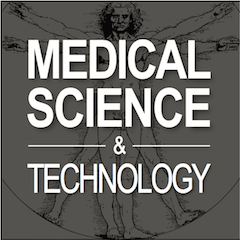Get your full text copy in PDF
Bettina Genz, Matthias Lorenz, Hildegund Sauer-Eppel, Gerhard M Oremek
Med Sci Tech 2007; 48(2): RA97-99
ID: 881551
Introduction: In human pancreatic carcinoma (PCa) mutations in the p53 tumour suppressor gene are present in up to 50% of cases. Conformational change and cellular accumulation, together with subsequent release of mutant and normal p53 protein from transformed cells, may initiate a B-cell response with generation of circulating autoantibodies to p53 protein (anti-p53). Material and Methods: In the present study we analyzed the sera of 85 consecutive patients with acute pancreatitis (n=19), chronic pancreatitis (n=33) and PCa (n=33) to evaluate the specificity of autoantibodies to p53 protein (anti-p53) as a serological marker for PCa. Detection of anti-p53 was performed using an ELISA system with immobilized recombinant wild-type p53 protein.Quatitative determination of CA-242 was performed by an enzyme- immunological assay. Results: Autoantibodies to p53 were detectable in 1/19 patients with acute (5.3%) and in 4/33 patients with chronic pancreatitis (12.1%). All anti-p53 positive patients with acute or chronic pancreatitis were carefully examined and no underlying malignant disease was found. During follow-up (range: 281 – 647 days; mean: 472 days) none of these patients showed any evidence for subsequent development of PCa or any other malignantndisease. In patients with PCa and anti-p53 was detected in 6/33 cases resulting in a sensitivity of 18.2% with a specificity of 90.4%. In contrast to anti-p53, detection of serum carbohydrate antigen (CA 242) resulted in a sensitivity and specificity 65.7% and 79.2% (CA 242 <27 U/ml) and 79.2% and 90.4% (Ca 242 >100 U/ml) for the detection of PCa, respectively. Taken together, the sensitivity of anti-p53 formation was low in patients with PCa (18.2%). Conclusions: Futhermore, the detection of anti-p53 was not specific for malignancy indicating that severe inflammatory processes may also induce anti-p53 formation.The sensitivity and specificity of the tumour marker CA 242 for the detection of pancreatic cancer was respectively. (Clin Exp Med Lett 2007; 48(2): 97-99)
Keywords: anti-p53, Autoantibodies, pancreatic carcinoma, acute pancreatitis, chronic pancreatitis, tumour screening



